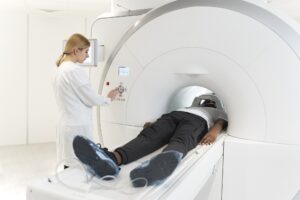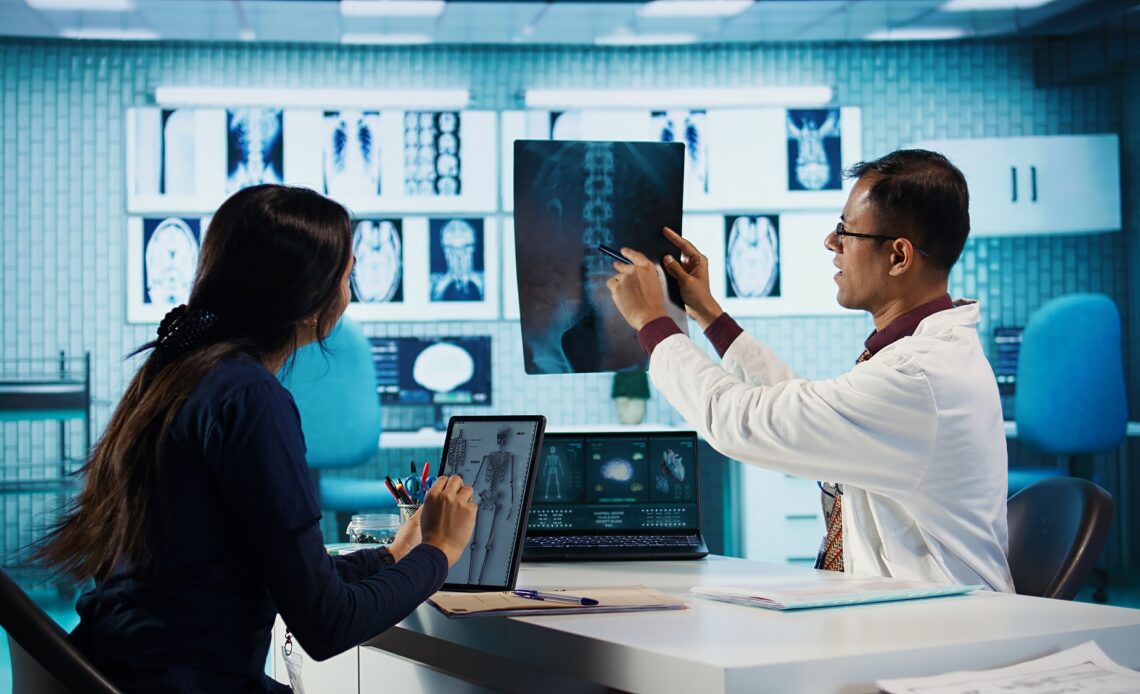Introduction to MRI and CT Scans
In the realm of medical imaging, two of the most commonly utilized diagnostic tools are MRI (Magnetic Resonance Imaging) and CT (Computed Tomography) scans. Each of these imaging methods plays a pivotal role in diagnosing a variety of health conditions. Understanding the fundamental differences and applications of these technologies can aid you in making informed decisions about your healthcare needs.
MRI and CT scans serve different purposes, and knowing which is appropriate for your situation can greatly impact your diagnosis such as cancer and treatment plan. While both MRI and CT scans provide detailed images of the internal body structures, they use different technologies and are suited for different types of examinations.
By understanding the differences between MRI and CT scans, you will be better equipped to discuss your options with your healthcare provider, empowering you to make decisions that are best for your health and well-being.
What is an MRI Scan?
An MRI scan uses a powerful magnetic field, radio waves, and a computer to produce detailed images of the body’s organs and structures. This technique is particularly effective in assessing soft tissues, such as the brain, spinal cord, muscles, and ligaments and is often used in the detection and monitoring of cancer. Unlike other imaging methods, MRI does not involve ionizing radiation, making it a safer option for repeated use.

MRI scans are especially valuable in detecting abnormalities in the brain and spinal cord, diagnosing joint and soft tissue injuries, and evaluating conditions affecting the liver, breast, and other organs. The high-resolution images produced can reveal even the smallest changes in tissue structure, making MRI an indispensable tool in modern medicine.
What is a CT scan?
A CT scan, also known as a CAT scan, uses a combination of X-rays and computer technology to create cross-sectional images of the body. This method is particularly effective for examining bone injuries, diagnosing lung and chest problems, and detecting cancers. CT scans are quick and widely accessible, making them a popular choice for emergency situations.
CT scans are especially useful for diagnosing conditions involving bones and dense body parts. They are also used to guide certain medical procedures, such as biopsies, and to monitor the effectiveness of treatments like chemotherapy. While CT scans involve exposure to a small amount of radiation, the benefits often outweigh the risks, particularly in critical diagnostic situations.
Key Differences between MRI and CT Scans
One of the primary distinctions lies in the technology each scan utilizes. While MRI relies on magnetic fields and radio waves, CT scans use X-rays. This fundamental difference affects the type of images produced and the conditions each scan is best suited for.
MRI scans excel in visualizing soft tissues with high precision. They are ideal for examining the brain, spinal cord, and muscles. Conversely, CT scans are more effective for imaging hard tissues, such as bones, and are often used to quickly assess trauma injuries.
Another significant difference is the duration and setting of the scan. MRI scans tend to take longer and require the patient to remain still inside a narrow tube, which can be challenging for those with claustrophobia. CT scans, on the other hand, are quicker and involve lying on a table that moves through a larger, more open scanner.
Advantages and Disadvantages of MRI Scans
Advantages of MRI Scans:
- Non-Invasive and Safe: MRI scans do not involve exposure to ionizing radiation, making them safer for repeated use, particularly in children and pregnant women.
- Detailed Imaging: They provide high-resolution images of soft tissues, which are invaluable for diagnosing neurological conditions, musculoskeletal disorders, and soft tissue injuries.
- Comprehensive Views: MRI can capture images from different angles and planes, offering a comprehensive view of the organs and tissues.
Disadvantages of MRI Scans:
- Duration: The procedure can be lengthy, often requiring you to remain still for extended periods, which can be uncomfortable.
- Claustrophobia: The enclosed nature of the MRI machine may cause discomfort for those with claustrophobia.
- Cost: MRI scans are generally more expensive than CT scans, which can be a consideration if cost is a factor in healthcare decisions.
Advantages and Disadvantages of CT Scans
Advantages of CT Scans:
- Speed:CT scans are quick to perform, making them ideal for emergency situations where time is critical.
- Accessibility:They are widely available and often the first line of investigation in trauma cases.
- Boneand Dense Tissue Imaging: Excellent for visualizing complex fractures and dense tissues, such as the chest and abdomen.
Disadvantages of CT Scans:
- Radiation Exposure: CT scans involve a small dose of ionizing radiation, which can be a concern, especially with repeated exposure.
- Less Detail for Soft Tissues: They are not as effective as MRI in capturing detailed images of soft tissues.
- Potential Allergic Reactions: The use of contrast dye in some CT scans can lead to allergic reactions in sensitive individuals.
When to Choose an MRI or CT Scan

The choice between an MRI and a CT scan depends on your specific medical condition and the type of information your doctor needs. MRI scans are ideal for evaluating soft tissues, making them the preferred option for conditions involving the brain, spinal cord, joints, or ligaments.
If you’re experiencing neurological symptoms such as persistent headaches, seizures, or cognitive changes, or if detailed imaging of soft tissue injuries like ligament tears is needed, an MRI may be recommended. Additionally, since MRI does not use radiation, it is often safer for younger patients or those requiring frequent imaging.
On the other hand, CT scans are better suited for emergency situations due to their speed and effectiveness in imaging dense tissues like bones. They are commonly used to assess traumatic injuries (e.g., fractures, internal bleeding), or diagnose chest and abdominal issues such as infections, tumors, or acute pain. CT scans are also useful for guiding biopsies and other procedures, providing quick and detailed images of internal structures.
Common Medical Conditions Diagnosed by MRI and CT Scans
MRI-Detected Conditions:
- Neurological Disorders: Conditions like multiple sclerosis, brain tumors, and stroke are often diagnosed with MRI due to its detailed brain imaging capabilities.
- Musculoskeletal Issues: Tears in ligaments, tendons, and other soft tissues are effectively identified with MRI scans.
- Breast Cancer: MRI is used alongside mammography to assess the extent of breast cancer and monitor treatment response.
CT-Detected Conditions:
- Trauma Injuries: Fractures, internal bleeding, and injuries from accidents are quickly assessed using CT scans.
- Lung and Chest Conditions: Pneumonia, pulmonary embolism, and lung cancer are commonly diagnosed using CT imaging.
- Abdominal Disorders: Appendicitis, kidney stones, and other abdominal issues are effectively evaluated with CT scans.
Knowing which conditions each imaging method detects helps you and your doctor choose the best diagnostic approach.
Conclusion
Deciding between an MRI and a CT scan involves understanding your medical needs and the advantages of each method. MRI provides detailed images of soft tissues, ideal for neurological and musculoskeletal evaluations. CT scans offer rapid, precise imaging of bones and dense tissues, essential in emergencies.
Your healthcare provider will guide the decision based on the area of concern, medical history, and risks. With the right information, you can actively participate in your healthcare decisions for the best outcomes. For personalized advice, consult your healthcare professional to determine the most appropriate imaging for your needs.


